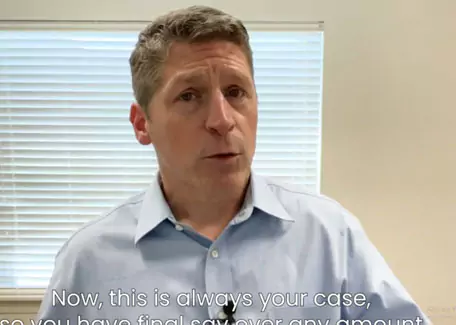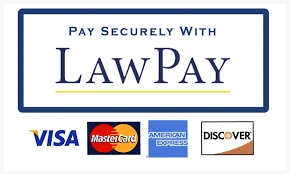Suspended and Deferred Sentences in Louisiana

Suspended And Deferred Sentences In Louisiana
A misdemeanor or a felony conviction on your record may pose serious disadvantages in a person’s life since a conviction would show on any background check conducted in your name. Generally, a conviction can limit an individual’s ability to obtain specific licenses, job eligibility, housing opportunities, or receive public assistance. As unfortunate as it is, convictions are often associated with a particular social stigma.
Therefore, it may be valuable for an individual to have their misdemeanor, felony, or DUI/DWI conviction deferred or suspended and possibly eventually get dismissed, if possible, under Articles 893 and 894.
What Is The Louisiana Criminal Procedure Article 893?
The Louisiana Criminal Procedure Article 893 applies only to first-time felony convictions.
Under this Article, a felony defendant who plead guilty can have their conviction set aside and dismissed to avoid prison time. Instead of serving time in prison, a person convicted of a felony will be placed under the supervision of parole and probation for at least one year but no more than three years, except for the programs discussed below.
Are There Exceptions To The Three-Year Limit Of Probation Under Article 893?
Yes, There Are.
An exception to the three-year limit is if the court determined that the successful completion of one of the programs listed below may require a period of probation that exceeds the three-year limit but no longer than eight years.
- Drug division of the district court
- Established driving while intoxicated court or sobriety court program
- Mental Health Court Program
- Veterans Court Program
- Re-entry Court Program
- Swift and Certain Probation Pilot Program
Another exception is if the defendant has failed to complete the terms and conditions of their probation. In such circumstances, the court may extend the probation period if it does not exceed two years.
Who Is Eligible To Get A Felony Conviction Suspended Or Deferred Under Article 893?
Under Article 893, Only Non-Violent Felony And Non-Capital Felony Charges Are Eligible To Be Deferred Or Suspended.
Moreover, only first-time felony convictions are allowed to be suspended or deferred under Article 893. This means that if you have a previous felony conviction, you would be deemed ineligible to get your current felony conviction deferred or suspended.
Is There A Limit To How Often A Defendant Can Use Article 893?
Yes, There Is.
Under Article 893, an individual can have their felony charges suspended or deferred only once.
What Is Article 894 For Misdemeanors And DUI/DWI In Louisiana?
Under the Louisiana Criminal Procedure Article 894, an individual charged with a DWI/DUI or misdemeanor, with certain exceptions, could get their conviction dismissed by pleading guilty to the charge and completing the conditions of their probation. Article 894 also allows the individual to forgo serving time in jail by agreeing to be under probation.
However, it is essential to note that the judge may deny the application of Article 894 if the individual gets re-arrested, convicted of any charge during probation, or fails to complete the probation order. The individual may also be ordered to pay all restitution and comply with the other terms of the probation imposed on them.
On the other hand, if the defendant has completed the probation according to the court’s order, then the judge would grant the applicatio
Who Is Eligible To Have A Misdemeanor Or DWI/DUI Convictions Deferred Or Suspended Under Article 894?
Generally, most misdemeanor charges and DUI/DWI convictions are eligible to be deferred or suspended under Article 894. However, the following exceptions are deemed to be ineligible:
- Criminal neglect of family
- Stalking
- Domestic abuse battery
- Sex offenses
Who Decides If An Individual Will Get To Apply Article 894 On Their Charges?
As noted above, most misdemeanor and DWI/DUI charges are eligible under Article 894. However, being qualified is not a guarantee that gets the court to apply Article 894. Instead, the application of Article 894 in a misdemeanor or DWI/DUI charge is solely based on the judge’s discretion. After all, no existing law in Louisiana requires a judge to apply Article 894.
In deciding whether to apply Article 894 in a specific case, the judge uses various factors, which may include, but are not limited to, the nature of the crime, facts and circumstances surrounding the charge, or whether the defendant has previous or pending arrests and convictions.
Are There Limits To Using Article 894 For Misdemeanors And DUI/DWI Charges?
Yes, There Are Limits To Applying Article 894.
Generally, a person is limited to getting their misdemeanor convictions deferred or suspended under Article 894 once every five years. In comparison, Article 894 can only be applied to DUI/DWI convictions every ten years.
Can These Charges Be Dismissed After The Probation Period Under Article 893 Or 894?
It Is Possible.
Upon completing their probation, the court may set aside a conviction and dismiss the individual’s charges.
A misdemeanor, DUI/DWI, or felony charge can severely affect an individual’s life. Thus, it is vital to apply the benefits of getting misdemeanor, DUI/DWI, or felony charges deferred or suspended under Articles 893 or 894.
If you or your loved one is involved in a misdemeanor, DUI/DWI, or felony charge, you should speak with an experienced criminal defense attorney to see if requesting relief under Article 893 or 894 will be possible in your case. You can call (225) 963-9638, or you can click here to contact us for a free consultation. Our highly experienced criminal lawyers can help you assess your case and represent your interests.



